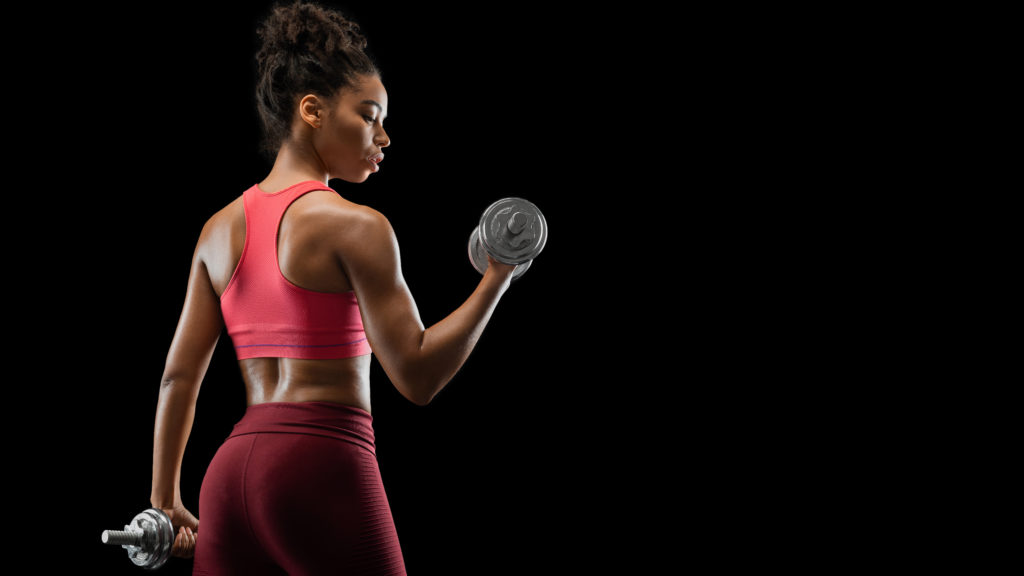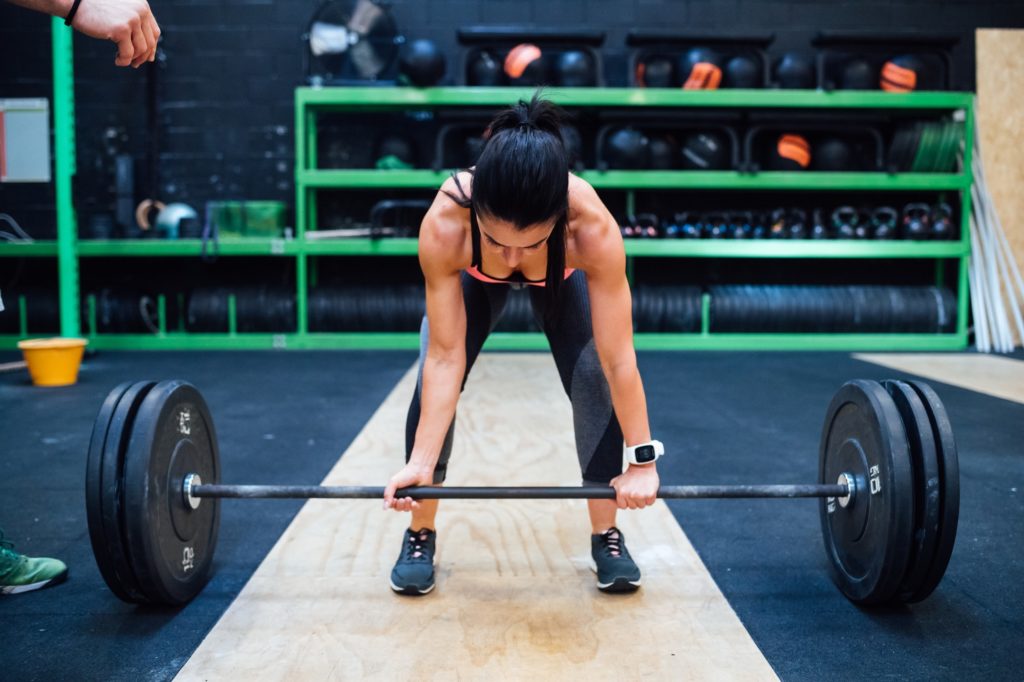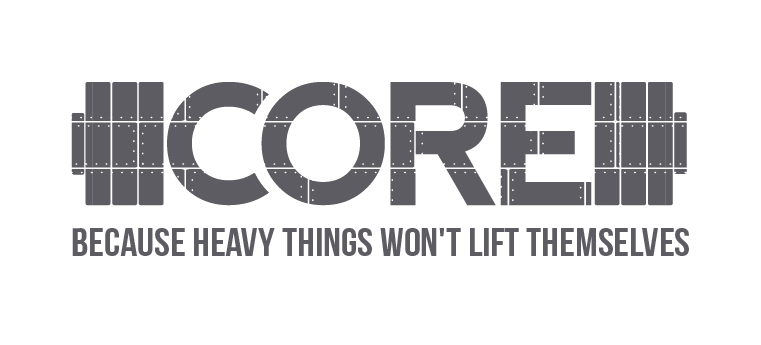I received a question recently via my Instagram DM’s and figured it prudent to take some time to write a more thorough response I could share with the masses here.
1. I hope it helps and makes sense.
2. Um, why aren’t you following me on IG?1
Here’s the question:
“What is your response to female clients who use the cliche of not wanting to get bulky when training? Any practical scientific routes that you speak about to dispel this myth?”

My Response 👇👇
I gotta be honest and forthright out of the gate…
…I really do feel this sentiment and way of thinking is shrinking and becoming less of a “thing” in 2022. Granted this is just my N=1 experience, but since this is my blog, pretty much anything I say here should be taken as fact.
Like:
- Hacks is the funniest show on television right now.
- Baseball players can (and should) perform overhead pressing.
- I think my cat wants to kill me.
- No, really, I’m not kidding.
- Why are you looking at me like that, Dagny?
- No, wait, stop. STOP.
- Ahhhhhhhh.
I joined my first commercial gym in 1996. I came home for the summer after my freshman year in college and was elated to find out my hometown had suddenly gotten a bit more badass and opened up a gym.
(it sure beat having another pizza shop open up)
It was stellar and it served as my “home-base” until I left for New England in the fall of 2005. In those nine years it was very rare to see a woman in the free-weight area lifting weights. I felt it was fantastic anytime I saw it happen, but it was a rare event.
Akin to me wearing shorts in public.
Anyway, once I moved to New England (and subsequently Boston) I ended up living in a proverbial strength & conditioning bubble where people of all shapes and sizes (as well as non-Y chromosome havers) performed full-rom pull-ups, were more inclined to squat on Monday than bench press, and salivated when it was deadlift day.

And that’s where I lived until this past Fall when I joined my first commercial gym since 2005. I’ve been training there for the past several months and it’s night and day in terms of the general vibe.
Everyday I see various women squatting, deadlifting, thrusting, and lifting appreciable weight. It’s awesome and I love that the mentality and attitude toward strength training has shifted to reflect a stark contrast compared to a generation prior.
That said, it’s not lost on me that the stigma of “lifting weights will make me bulky” still stings in today’s society and that it festers in the psyche of some women still.
The best way I can answer this question is in two parts:
1. What to NOT say and do.
2. The opposite of that.
What to NOT Say and Do
The question sent to me asked if I have a “practical scientific route” I take when this issue comes up. I do (or I should say did), but it rarely (if ever) works.
If I’m honest, early in my career I took this approach and it makes me cringe to think about it. If a new female client brought up her concerns about putting on too much muscle it took a lot of will power on my end to not have my eyes roll out of their sockets.
And then I’d get all “mansplainy” and wax poetic about hormone profiles and how women have waaay less testosterone than men and that it’s really hard to put on muscle.
I’d say something snide like:
“It’s hard to put on muscle. 100% of guys wish they could add muscle as fast as many women “think” is possible.”
Then, to top it off, like an a-hole I’d continue…
“You won’t turn into He-Man in a week. Or a month, or a year for that matter.”
Like I said, I cringe when I think about how I used to handle this sort of conversation. I’m willing to bet I lost more potential (female) clients then gained taking this approach.
Here’s What I Now Do Instead
At this point in my career I tend to get a lot of self-selected clientele. Meaning, by the time someone walks through the front door the day of their initial assessment or session, they’re already perfectly aware of what they’re getting themselves into.
They’ve either read a lot of what I have written and know my general approach to training or they look up at the sign above the door and read my tagline…

Surprise!
Nevertheless, while I still like to endorse some level of education on the topic of women and strength training, I’ve since rescinded my global approach to a large degree.
I still play devil’s advocate at times and will say something like “saying you’re going to get big & bulky from strength training is like me saying I’m going to win a gold medal in the Olympics because I went out and did some sprints yesterday.”
(and then I keep my fingers crossed that there’s nothing but crickets chirping afterward).
Instead of going on and on about women’s limited testosterone levels, how toning isn’t a real term (one of my biggest pet peeves fitness professional do), or how they’ll never attain the results of elite female bodybuilders, yada yada yada…I dig deeper, and ask more questions:
- “Why do you feel strength training will make you big and bulky?”
- What does bulky mean to you? What does it look like?
- “Is this something that happened in the past?
- “What exercise(s) in particular do you feel cause this?”
Maybe their perspective projects that of a trainer they worked with previously. Maybe they never took the time to learn nor where they shown proper technique. Or, I don’t know, maybe they have a hard time letting go of certain myths and think the Abominable Snowman exists.
Either way…
Sometimes it’s more helpful to take some time to peel back the onion and to ascertain someone’s root cause for thinking they way they do, rather than chastise them out of the gate for the sole purpose of proving them wrong.
I have found that this approach has been a far more efficacious way of handling things and has helped me build far more powerful and lasting relationships with my female clients.
And not for nothing: After a few weeks of consistency I find the switch flips anyway. Once the foreignness and stigma of the barbell is no longer a part of the story – and we begin to build & increase autonomy and competency – I find most of my female clients begin to strive to be more (adding muscle is cool!) rather than wanting to be less.



